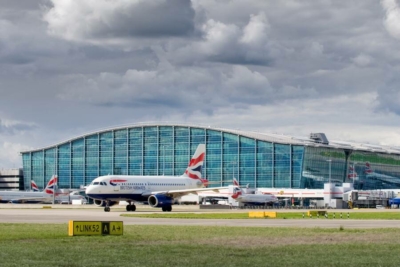Heathrow wants to put up ticket costs to recover covid losses – and the Government agrees
Links on Head for Points may support the site by paying a commission. See here for all partner links.
The Civil Aviation Authority is, astonishingly, allowing Heathrow to proceed with its claim to have its coronavirus losses repaid to it by the airlines via a levy on flight tickets.
Heathrow has asked the regulator for £2.8 billion to compensate it for the losses it has incurred due to coronavirus. The money would be paid to the airport by the airlines using it via an increase in ticket prices. British Airways passengers would be on the hook for roughly half, so circa £1.4 billion.
Whilst you would have expected the claim to be thrown out, the CAA is allowing it to proceed.

On Friday, the CAA – which is technically an independent regulatar and not a Government body – published a document which says, basically, that it doesn’t know what to do.
The CAA said that the full £2.8 billion claim seems ‘disproportionate’. (The original claim was for £1.7 billion but Heathrow has now raised this by an extra £1.1 billion.)
This isn’t surprising when you remember that Heathrow’s entire turnover for 2019 was just £3.0 billion. The airport isn’t asking to be paid 11 months of profits – it wants to be paid 11 months of turnover.
The CAA has, however, extended its consultation period to (de facto) give the airlines more time to suggest how much they think they would like to hand over.
IAG, parent of British Airways, unsurprisingly believes that the sum should be zero. It points out that Heathrow has paid £4 billion in dividends to its shareholders in recent years, and as these include the Qatari and Chinese Governments they are not exactly strapped for cash.
Quoted in The Times, IAG said:
“It’s not fair nor reasonable to ask consumers to bail out Heathrow. It’s a wealthy, privately owned company which should seek funds from its shareholders, as many other businesses in our industry have done to weather this pandemic.”
Heathrow believes that a failure to make airline passengers bail it out will:
“undermine the perception of investing in the UK and the Government’s Global Britain agenda.”
Paul Smith, Director of the CAA, said:at the UK Civil Aviation Authority, said:
“In these exceptional circumstances we are persuaded that there are real issues we need to address to protect Heathrow’s consumers. However, in our view Heathrow’s proposals are not in the best interests of consumers. Although we propose to reject its disproportionate request, we are issuing a final consultation on whether a more limited and targeted intervention is warranted now or whether it is in consumers’ best interests to consider these issues as part of developing a new longer-term regulatory settlement, which will begin at the start of next year.”
IAG’s £1.4 billion share of the £2.8 billion, if Heathrow was successful in recovering the full sum it is claiming, would not be handed over in cash up front. It would be funded by an extra levy added to all British Airways flight tickets from Heathrow via an increase in the Regulatory Asset Base.
All other airlines using Heathrow would be in the same position, but clearly BA would be hit the hardest by a substantial margin.
The extended consultation period ends on 5th March.


 Rob
Rob 





Comments (82)